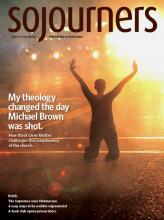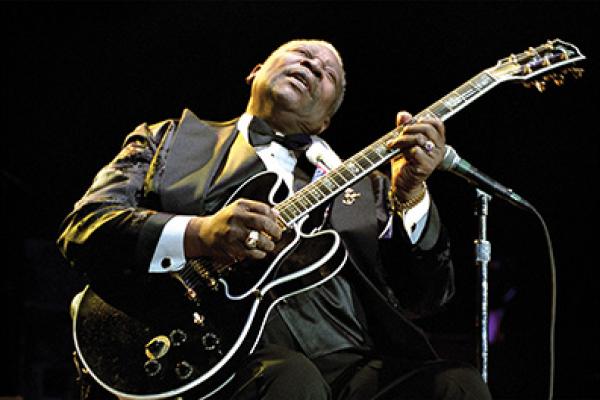THE DEATH of B.B. King this spring was marked by an outpouring of homage appropriate to the man’s talent, his influence on U.S. culture, and his fabled personal humility and generosity.
He started out picking cotton and singing on the street and ended as one of the most famous and honored men on earth—a classic rags-to-riches tale. But King wasn’t just a black Horatio Alger. And his story wasn’t just one of individual striving and achievement. King also understood that his art was rooted in the collective struggle of his people and that he was a part of that struggle.
I grew up about 30 miles from B.B. King’s Sunflower County, Miss., home, but I discovered him the same way most white people my age did, by hearing “The Thrill Is Gone” on the radio. It’s a recording that still jumps out of the speakers and grabs the heart. It starts with a mournful guitar melody. Then, behind verse two, an eerie, quavering wash of strings begins low in the mix and rises through the rest of the song. By the time King wails out to his lover, “I’m free from your spell, and now that it’s all over, all I can do is wish you well,” you knew you were hearing the last words of a dying man.
Read the Full Article

